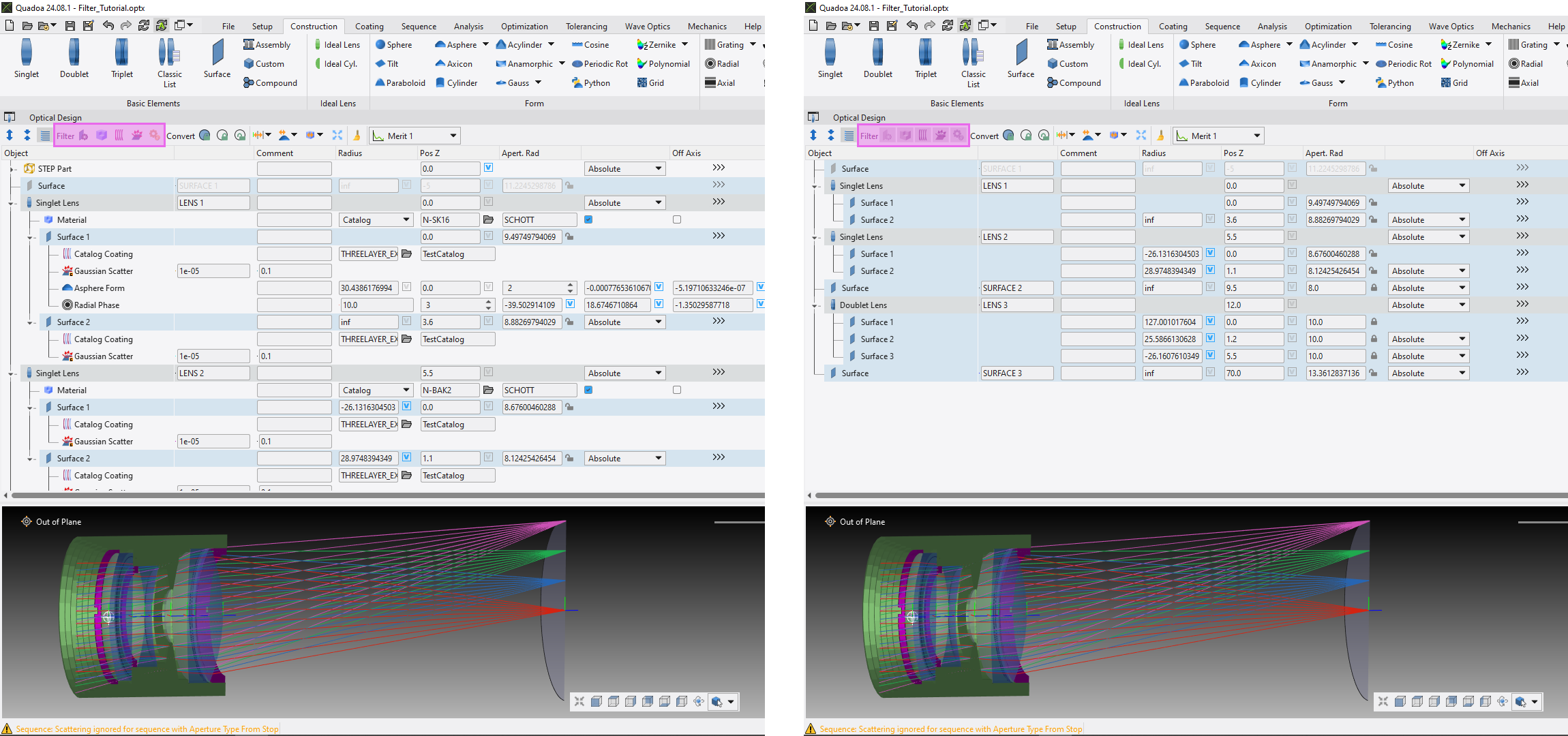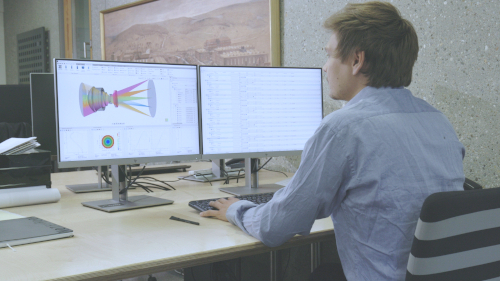Media Center
Watch the latest Quadoa® Optical CAD Videos
YouTube channel
Optimizing Workflow in the Optical Design Editor (ODE) Using Filters
Introduction
The Optical Design Editor is a powerful tool designed for configuring the core components of an optical system, such as lenses, surfaces, materials, and mechanical parts.
It enables users to easily edit and manage the parameters of these components, offering a comprehensive view of all relevant system details in one centralized location.
This holistic approach streamlines the design process, allowing users to access and modify critical parameters without jumping between different interfaces.
However, working on all parameters simultaneously is typically unnecessary and can lead to clutter. To address this, the Optical Design Editor provides a set of filters,
enabling users to focus on specific aspects of their design.
Key Filter Options
At the top of the Optical Design Editor, a variety of filters are available, allowing users to selectively hide or display elements as needed. These include filters for:
Surface Properties: (with an option to hide all properties at once)
These filters ensure that designers can concentrate only on the parameters relevant to their current task, maintaining an organized and efficient workspace.

|
|
Filters in Optical Design Editor
|
Viewing Modes: Normal and Compact
In the normal view, each cell in the editor displays the title in the header of the cell, providing full details for easy reference.
If screens space is limited or to get a better overview, the display can be switched to compact mode. In this case only the the title of the selected row is displayed in the header of the table.

|
|
Compact and Normal View in Optical Design Editor
|
Default Off-Axis Parameter Settings
To further reduce visual clutter, the Optical Design Editor hides all off-axis parameters by default. This ensures a simplified and focused view, helping users quickly
locate and edit on-axis elements without distraction. The off-axis parameters can be expanded by clicking on the off-axis arrows.

|
|
Off-Axis Parameters in Optical Design Editor
|
Enhanced Focus with Filters
By utilizing the filters and display options, designers can keep their workspace uncluttered, focusing only on the essential elements needed for each stage of the design.
This flexibility not only improves productivity but also minimizes the likelihood of errors by providing a cleaner and more manageable design interface.
In conclusion, the filter system within the Optical Design Editor is a crucial feature for maintaining clarity and efficiency, allowing users to easily tailor their workspace to suit their current needs.






